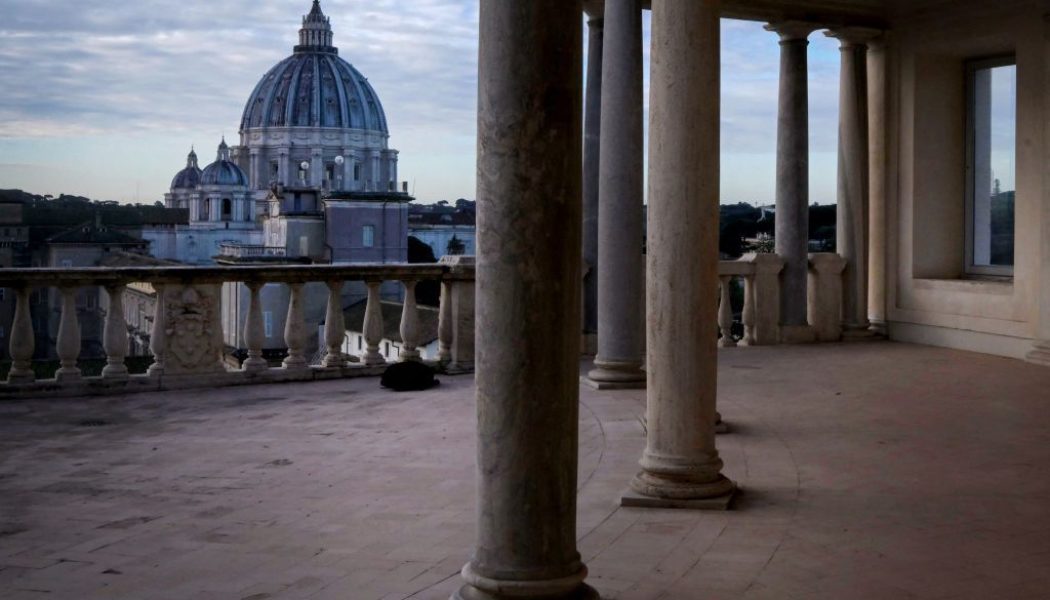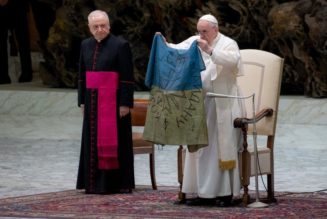
But Vella noted the garments can still hold devotional value, a claim he made referencing a letter from Pope Pelagius from the middle of the sixth century on a practice “used to obtain secondary relics.”
“Any commonly used garment could be placed in contact with the venerated tomb of a saint,” he said. “At that point the robe, a tunic, specifically, left for three days at the tomb of St. Peter, would have absorbed the sanctifying virtues ‘ex contactu,’ by contact, and would in turn have become a relic if our only one was truly identifiable with the relic of St. John.”
The garments were held in the Sancta Sanctorum (Holy of Holies), a chapel located at the top of the Scala Santa (the Holy Stairs) on the inside of the original Lateran Palace, which sits adjacent to the archbasilica of St. John Lateran, the official seat of the pope as the bishop of Rome.
The Sancta Sanctorum was used to store objects of inestimable artistic and devotional values, going back to at least the middle of the eighth century, and became the private oratory of the popes. The collection included items such as the jeweled cross of Pope Sergius, relics belonging to St. Praxedes and St. Agnes, as well as the Uronica icon, an image of Christ as ruler of the universe, attributed to St. Luke.
In 1903 Pope Leo XIII allowed for scholars to enter the site to open up an investigation of the relics. But it wasn’t until 1905 that a blacksmith was able to open the two 13th-century bronze doors that enclosed the iron vault under the altar.
“The reliquaries, as well as the textiles, were transferred to the Christian Museum of the Vatican Library in 1906, then to the Vatican Museums in accordance with the rescriptum of Pope John Paul II in 1999,” explained the Patrons of the Arts in the Vatican Museums, a group dedicated to the preservation and restoration of the museums’ extensive collection of artwork.







